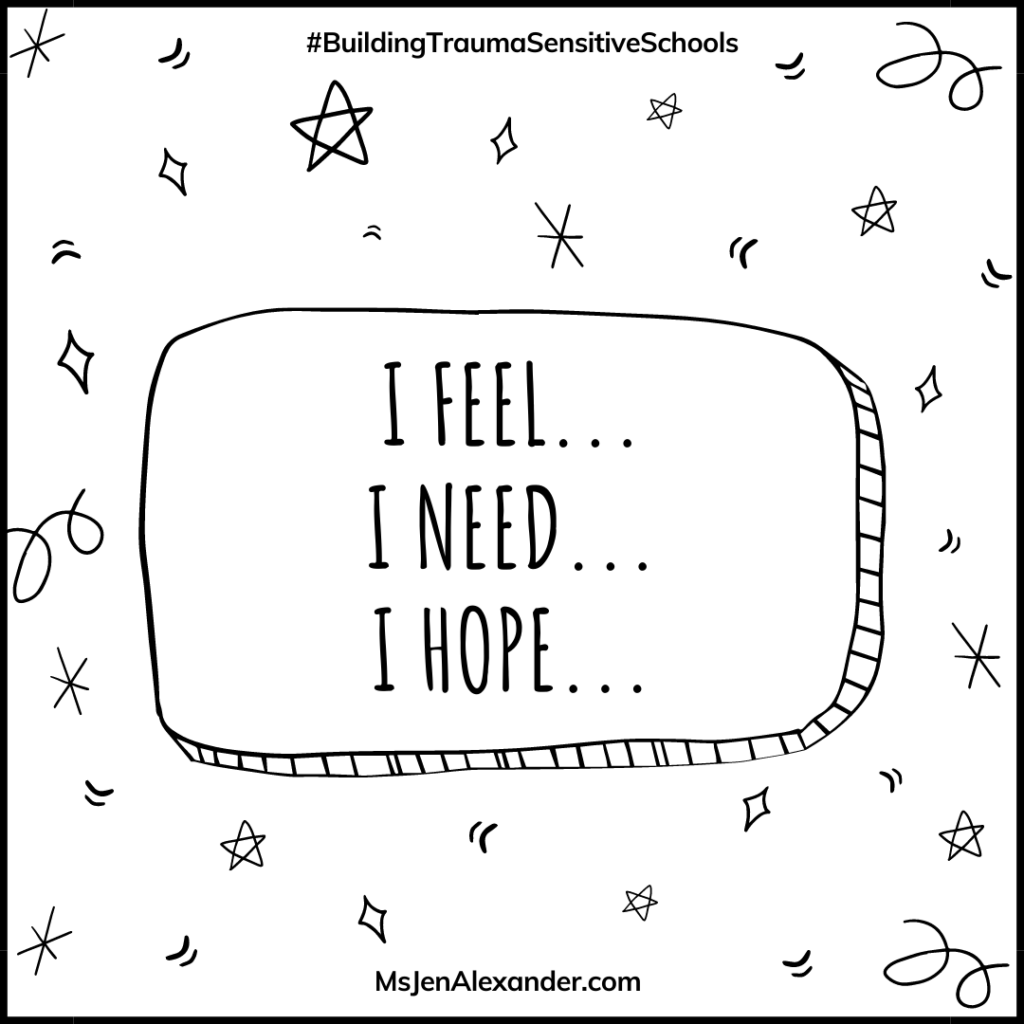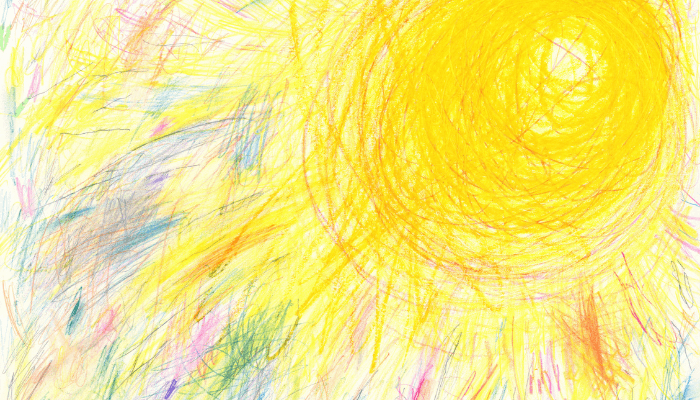This month marks the one year anniversary of the time when many people started staying home as much as possible due to the pandemic. It’s important for educators to acknowledge the anniversary of the pandemic’s beginning. Not doing so would gloss over the changes, harm, injustice, loss, and resilience that is part of our collective truth.
Future generations of youth will study this period of time. They will read about it and analyze different perspectives—all while being asked, “What might have it been like during a pandemic?” To ignore the significance of these conversations with students who actually are in the pandemic could negatively impact their understanding of these events (and their capacity to influence change). Even more importantly, it could also rob them of an opportunity to better understand themselves and their own communities.
Youth need adults to show them how to sit with and reconcile the many truths of the past year (and every other year too). They need educators who meet them in their humanness—vulnerabilities and all. Trauma-sensitive educators don’t ignore the hard stuff of life. They understand that life is full of both suffering and joy. Neither topic is off limits at school. In fact, healing and how it happens must matter to educators. It must matter in the classroom too. Of course, anything that matters is given space, time, and care.
Trauma-sensitive educators don’t ignore the hard stuff of life. They understand that life is full of both suffering and joy. Neither topic is off limits at school. In fact, healing and how it happens must matter to educators. It must matter in the classroom too. Of course, anything that matters is given space, time, and care.
Create space for acknowledging the anniversary of this collective trauma. See this as an opportunity to demonstrate and cultivate taking good care of one another. Furthermore, it’s also a season to begin thinking about options for providing eventual closure to a stressful school year. Consider flexible options as you do so.
Honoring Unique Feelings and Needs
Anniversaries of traumatic experiences or big changes, particularly ones marked by grief, can bring up different reactions for people of all ages. This will be true of the pandemic, which is a collective trauma.
The Mind May Remember
You may notice things in the season that take you back to a year ago. I, for example, find myself thinking of the lasts of last school year. March of 2020 was the last time I connected with staff, students, and families in my school building during conferences. I had no idea that we would not be returning after the spring break that followed—a transition that would also bring an end to my face-to-face work as a school counselor. I had already resigned for the next school year, resulting in a different end to that part of my career than I had imagined.
When I reflect on that time and notice how the weather now is similar, I feel what I felt then. I also find myself remembering different moments—sometimes with extra clarity and meaning. My last face-to-face conversation with a student, for example, was a playful one near the end of conferences. A little one came into my office, expressed concern, and asked if I always stay at school late at night. I’m thankful for that connection. The memory is more special now than it was a year ago. While painful, looking back also allows for appreciation. I can see how I’ve changed and grown. I also cherish gifts, like this one, from along the way.
The Body Often Remembers
Sometimes, though, anniversaries affect folks on the physiological level without individuals becoming consciously aware that their bodies are remembering. The person reacts with physical cues—perhaps unsure as to why they’re happening or what they mean. When this happens, children, teens, or adults may have difficulty sleeping, feel more irritable, anxious, or down, and overall, feel unsettled or distressed without being able to connect to why. Others may feel numb. At these times, some may prefer more connection, while others will seek less. If asked why their feelings or needs have changed, the answer might be, “I don’t know.” Often, the body remembers when the mind doesn’t.
It can be helpful to explain this to youth. Here’s one way to do so. “Some people will have big feelings related to this anniversary. Others might not feel anything at all. One way isn’t better than the other. It’s different for everyone, and that’s okay. The other thing that makes this anniversary unique is that the pandemic isn’t over yet. At the same time we might be looking back, we’re still in it. This influences feelings and needs too. As always, we need to feel and deal in healthy ways as much as possible.”
The other thing that makes this anniversary unique is that the pandemic isn’t over yet. At the same time we might be looking back, we’re still in it. This influences feelings and needs too. We need to feel and deal in healthy ways as much as possible.
Flexibility Comes from Offering Options
For some people, there won’t be much that seems different this spring. The good and not so good stuff that’s been happening will simply continue. Expect varied responses between individuals. Also, not all reactions will be negative. As such, it’s important to recognize and honor individuals’ unique feelings and needs. Do this by providing options for how your loved ones as well as students and staff can express themselves. For ideas, explore my blog post from a year ago called Trauma-Sensitive Student Support that included several activities and downloads related to this topic.
Providing Opportunities to Tell One’s Story
Anniversaries like this one can be an important time for each person who wants to to tell their story in their own way. In doing so, folks can commemorate their experiences together. Naturally, this encourages social support. It allows for meaning making too.
Give Choices at School
What are ways that staff and students can tell their stories at school? Choices include writing, creating something, or connecting with music. Then, facilitate sharing and listening as much or as little as is desired. Some may decide to honor loved ones, name losses, or share memories as part of this process. Reflecting on where you’ve been and how all that has happened has affected you is a way to integrate the experiences as part of your life story. You may benefit from doing this, and your students or team members may too.
Reflecting on where you’ve been and how all that has happened has affected you is a way to integrate the experiences as part of your life story.
Encourage sharing either informally or as part of a planned activity or ritual. It can also be something you do with a few of your closest people or with an entire community, whether it’s a classroom, school, or another group. Overall, inviting people to tell their stories at school can be a powerful way to acknowledge not only the hard stuff of the past year (of which there has been plenty). It also helps honor the coming together that may have happened within your supportive community. Even if it didn’t happen earlier, that coming together can still happen now, whether you’re face-to-face or online. It’s not too late.
Author Kaitlin Curtice (2020) shared a grief ritual on Twitter that she’s used in her family during the past year. It’s beautiful and relevant to this anniversary time. Light four candles together and name four things you’re grieving. Blow them out. Then, light them again and name four things that bring gratitude or joy.
Candles are likely not allowed at school, but find another creative way to do something similar. I love using sand tray with groups of students so I might present a large tray of sand in the classroom, smooth it out with a small rake, and invite each student who wants to to take a turn putting their fingerprint (or another symbol) in the sand while sharing a change or loss out loud if they want to. Then, we would smooth out the sand again with the rake and invite students to add something one at a time again while sharing what brings them gratitude or joy.
If touching sand in a somewhat shared way isn’t possible due to safety guidelines or if you’re online, consider giving clay or play dough to each student. They can add four finger prints (or other symbols) for losses, smooth it out, and add four more things for what brings them gratitude or joy. Then, talk together about what it was like to remember and share.
Experiences like these can be helpful individually and even more powerful together. As Laura van Dernoot Lipsky with Connie Burk (2009) described in Trauma Stewardship, “Community is compassion in action.” It’s a place where hope can be thoughtfully cultivated and nurtured. Being intentional in acknowledging this togetherness matters, including at school.
Consider Those Who May Need Something Different
If commemorating the past year in some way isn’t what’s best for you or others right now, that’s okay too. Individuals can also consider doing something completely different in this season. Think of this option as a reminder that this time this year is not the same as last year. No matter what, discourage social isolation. Embrace compassion and flexibility. Pausing to think about this time so that you (and others) can make a decision for yourselves while negotiating with others is what’s crucial.
Include a Focus on Hope
Regardless of what you decide to do at school, offer your students and staff many choices, including sharing about something else instead of focusing on the pandemic. Above all, don’t stop at processing feelings and needs, whether past or current. Go further to discuss what has helped everyone get through this time of big changes. Then, consider ending with a focus on hopes for the future. Inviting everyone to finish sentence stems like “I feel…” “I need…” and “I hope…” would be one way to do this.

A celebratory event that marks the completion of an unusual pandemic school year may eventually be helpful as well. Ensure that it is planned with students and is for students. Each group and their needs will be different. As such, talk it out together and collaborate to create a plan that best meets the varied needs of those in your setting.
In conclusion, remember that collective trauma, such as the pandemic, can cause incredible change and suffering but also growth. It’s critical to hold space for the different feelings, needs, and hopes that may go with an anniversary like this one and the upcoming end to the school year. How everyone makes meaning of these experiences both in themselves and within their communities can be an important part of feeling, dealing, and eventually, healing. Take time to pause with those you care about as you reflect on the past and move into the future. It can be a powerful living example of how people recover better together.
To Learn More…
- Revisit and adapt activities from my blog post called Trauma-Sensitive Student Support as you prepare to facilitate discussions about feelings and needs during this anniversary time.
- Explore other resources to help you help kids in my book Supporting Students and Staff After Covid-19.
- Register for my upcoming pay-what-you-can 1-hour online seminar Providing Closure in a Stressful School Year. I will teach you more ideas specific for acknowledging the anniversary of the pandemic’s beginning. We’ll also explore creative ways to facilitate closure for staff and students as you prepare for the end of the school year. Each participant will be provided with social and emotional learning (SEL) lessons that can be used with students in grades PreK-12+. Think leaving with lesson plans applicable for the remainder of the school year. Included are directions for a project that can be completed in a small group, an entire classroom, or schoolwide.
- Consider purchasing Ms. Jen’s post cards, which can be used to send encouraging words to youth when schooling virtually or in-person. Visit Ms. Jen’s Shop to learn more.
Honoring one another,

#BuildingTraumaSensitiveSchools #COVID-19 #GriefAndLoss #Healing #HelpingYouHelpKids
Reference
van Dernoot Lipsky, L. & Burk, C. (2009). Trauma stewardship: An everyday guide to caring for self while caring for others. Oakland, CA: Berrett-Koehler Publishers.



